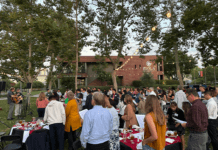Use a Modern Translation.
We can combat biblical illiteracy by committing to reading, studying, teaching and preaching from a modern translation. The English-speaking world has never had it so good. In the past 50 years, Bible translation teams have produced a dozen or more very good translations of the sacred text. For the last 400 years, the dominant (almost ubiquitous) translation for the English-speaking world was the King James Version. But the English language has changed. Not only do we not converse in King James English, we don’t think in that kind of English.
It’s important to have a translation that communicates God’s Word into our thoughts and beliefs in a natural way. When we read from a translation that resonates with us—something like the Modern English Version, releasing this month and covered throughout this issue of Charisma—we are much more likely to make Bible-reading a habit, and our time in the Word will be much more rewarding. A Bible that communicates in everyday language is one that is much easier applied to everyday life.
We Need the Word.
We take aim at the heart of biblical illiteracy when we commit ourselves once again to the gospel of Jesus Christ. The gospel is not “you do.” The gospel is “what Jesus did.” Reading the Bible won’t make us a Christian, but it helps us to grow as one.
The Word that became flesh has given us His Word. In it are the words of life—for us and for others. The more we embrace the gospel and what Jesus has done for us in His life, death, resurrection and ascension, the more we begin to think and act like the kingdom citizens we are. Being part of Christ’s new creation means having a new “want to” toward the Scriptures.
In fact, reading the Bible is actually part of the abundant life Christ has given us. The Word comes alive in us through the Spirit as we engage it. God has given us His Word to correct, rebuke, train and reprove us—to train us in righteousness (2 Tim. 3:16). And as the Spirit works in us through the reading of the Word, the transforming power of the gospel, through the filling of the Spirit, is at work in us.
The Word of God is essential to where we are right now. Grab a modern translation, take someone with you (maybe your whole church), and let’s engage the Scriptures to see the change it brings—even to a nation badly in need of it. We need not be dumb and dumber when it comes to the Bible. We can be faithful and fruitful in the Word instead.
Pardon Me, but Your One-Anothering Isn’t Showing.
We may be buying “how to live the Christian life” books in record numbers, but that’s not having a positive effect on discipleship. The elephant in the evangelical room: we have a knowledge addiction, even as we have an application deficiency.
Only 47% of us say that we have been discipled.
Only 39% of us have ever discipled someone else.
Overall, 43% of us have done neither.
We simply aren’t one-anothering each other, even though we have more discipleship and Christian growth tools at our disposal than ever before.
This series is adapted from an article I wrote for Charisma magazine.











